When navigating customer service challenges, having a clear escalation procedure can make all the difference in ensuring your concerns are addressed effectively. It often feels frustrating when initial inquiries don't yield satisfactory results, but knowing how to escalate can empower you as a consumer. In this article, we will explore a comprehensive letter template designed specifically for escalating customer service issues, providing you with the right tools to articulate your thoughts clearly. So, let's dive in and discover how you can take your customer service experience to the next level!
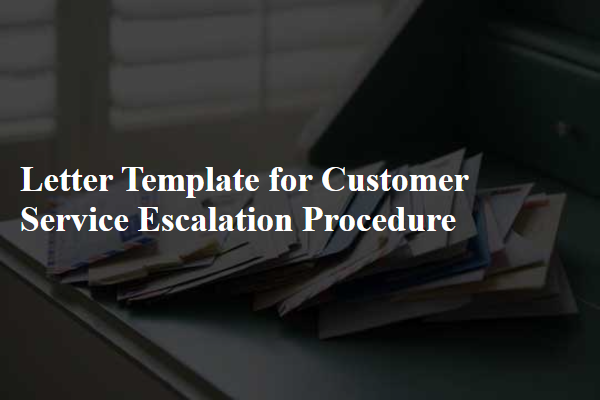
Customer Contact Information
Customer contact information is essential for effective communication in service escalation procedures. Key details include the customer's full name, which aids in personalizing interactions. The email address serves as a primary point of contact and allows for formal correspondence. Phone number, ideally a mobile one, facilitates rapid communication and resolution. Address, including city, state, and zip code, helps in verifying identity and regional service-related issues. Additionally, account number or customer ID, specific to the company, enables representatives to access pertinent information quickly, expediting the escalation process.
Detailed Description of Issue
A customer service escalation procedure is crucial for addressing unresolved issues effectively and efficiently. For instance, an unsatisfactory credit card transaction dispute may require documentation, including transaction dates (e.g., March 15, 2023), amounts (such as $150), and transaction reference numbers for clarity. Customers must provide specific details about the service experience, including the customer service representative's name (e.g., John Smith) and the date of interaction (e.g., March 20, 2023), to track the issue accurately. Additionally, customers should outline the steps already taken, such as initial phone calls and follow-up emails, to prevent redundancy and facilitate a quicker resolution. By compiling this essential information, companies can enhance their understanding of the customer's situation, leading to improved service and accountability.
Previous Communication Reference
In customer service escalation procedures, previous communication references play a critical role in ensuring continuity and accountability. Each reference should include essential details such as ticket numbers, relevant dates, and unique customer identifiers, enabling service representatives to trace interactions effectively. For instance, a ticket number (like #123456) should link directly to prior correspondence about an unresolved issue with an order placed on March 15, 2023, for a Samsung Galaxy S21 smartphone. Establishing this context allows the escalation handler to grasp the history of the issue, identify recurring themes, apply lessons learned, and enhance the overall resolution process to meet customer satisfaction goals.
Escalation Request Reasoning
When a customer experiences unsatisfactory service, entering an escalation request can be crucial for resolution. This process typically involves outlining specific grievances, such as delayed responses from support teams or unresolved issues with products like electronics--or instances such as a malfunctioning smartphone. Customers should detail the timeline of interactions, referencing particular dates like December 1, 2022, when the initial complaint was made and subsequent follow-ups on December 5, 2022, and December 10, 2022. Including incident numbers or ticket references related to the service experience further strengthens the case for escalation. Additionally, providing background information about the purchased product, including brand name and model number, alongside the desired resolution (like a refund or product replacement) can expedite the process.
Desired Resolution or Outcome
In customer service scenarios, an escalation procedure often emphasizes achieving desired resolutions or outcomes, such as timely refunds or product replacements. During these interactions, clear communication is crucial in detailing the specific issues experienced, such as delays in shipping exceeding estimated delivery dates. An effective escalation highlights the urgency of resolving matters related to customer dissatisfaction, particularly in areas like service quality or product performance, which can significantly impact brand loyalty. A resolution timeline, ideally within 48 hours, is often requested to ensure prompt handling of cases involving defective items or unsatisfactory services, contributing to an improved overall customer experience.

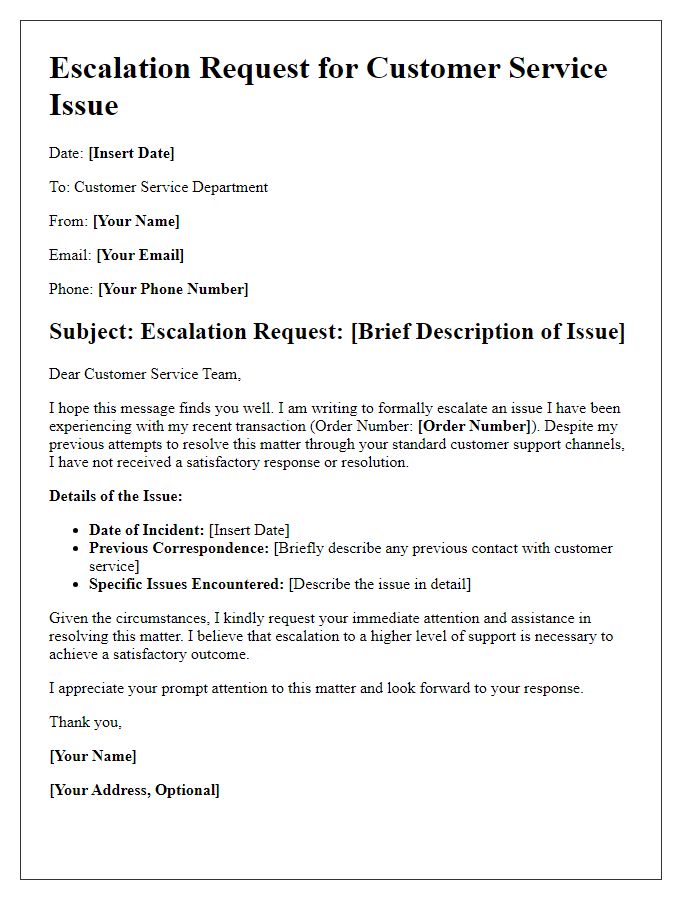
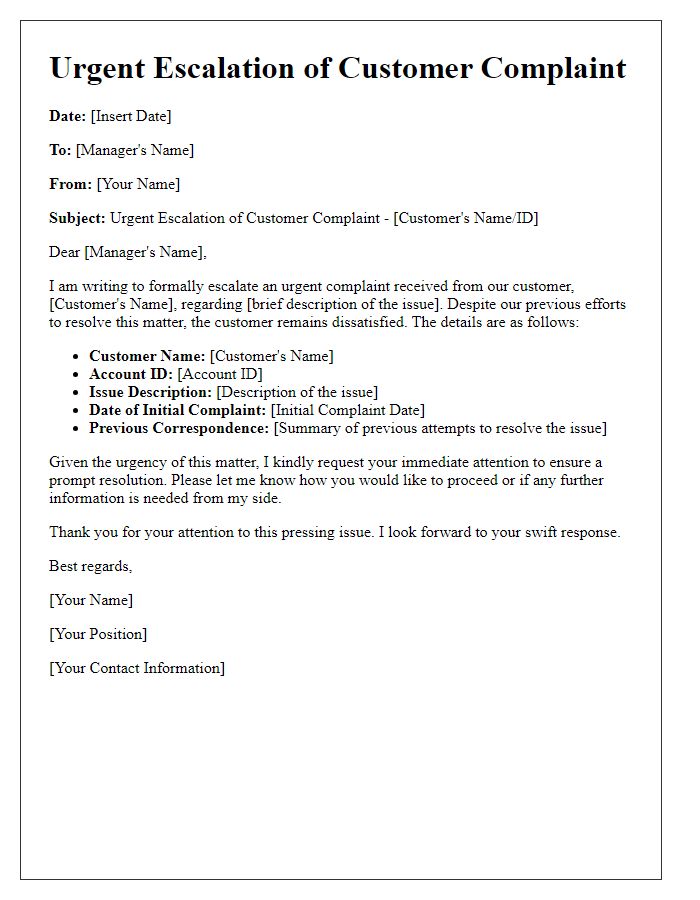
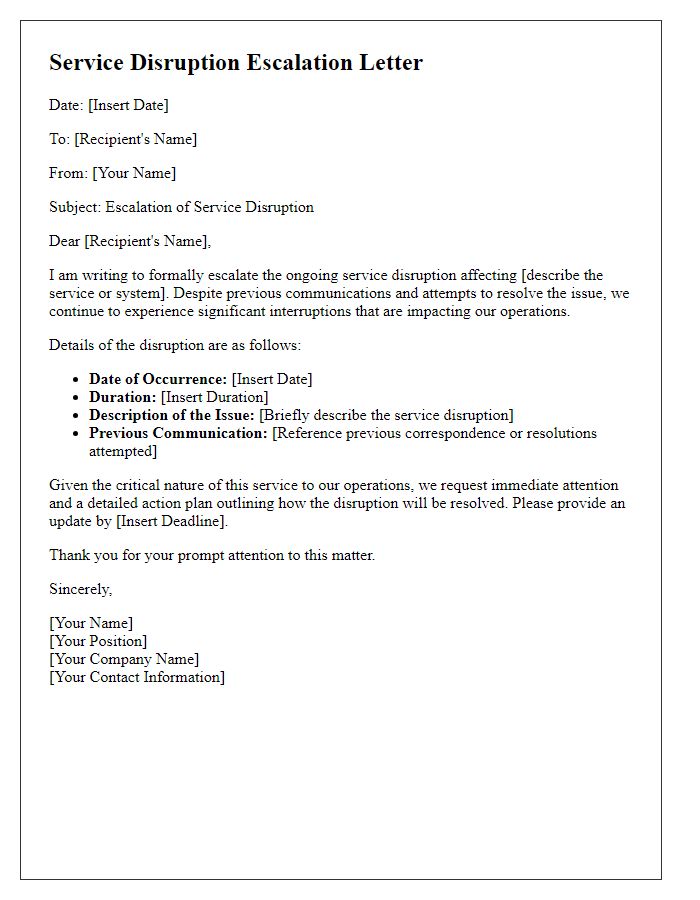
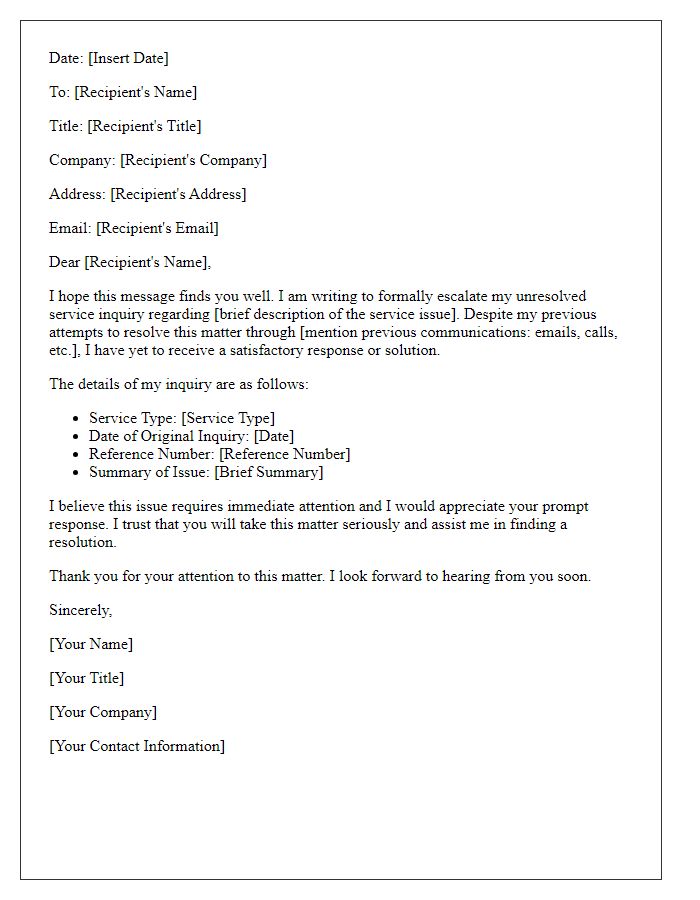
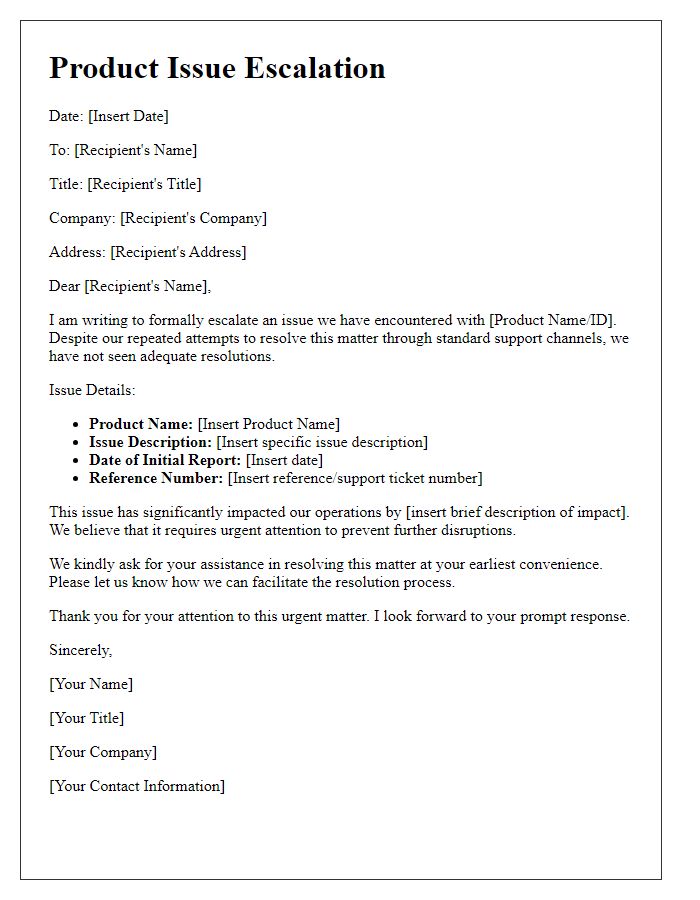
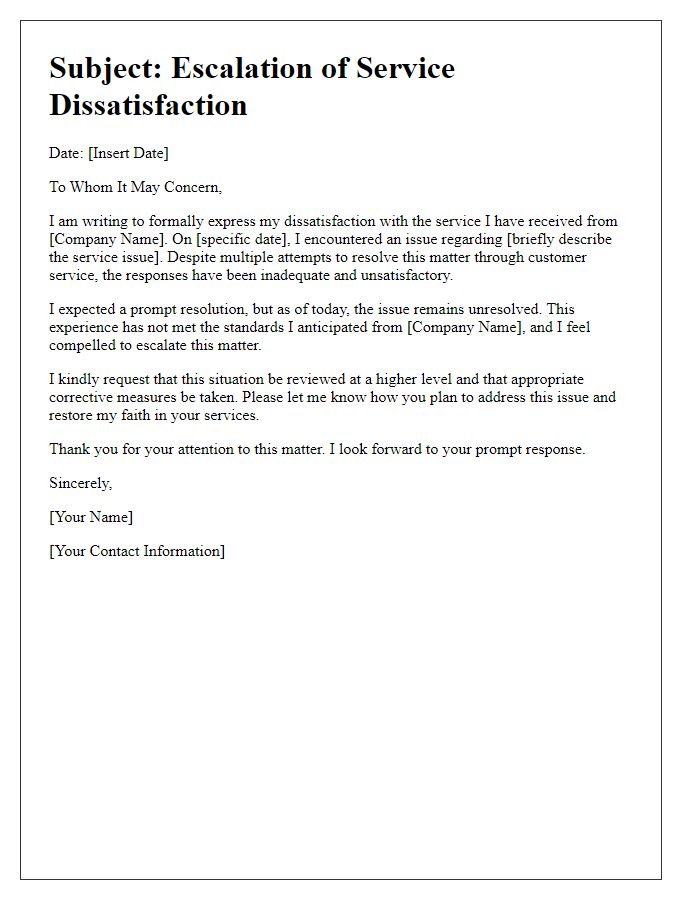
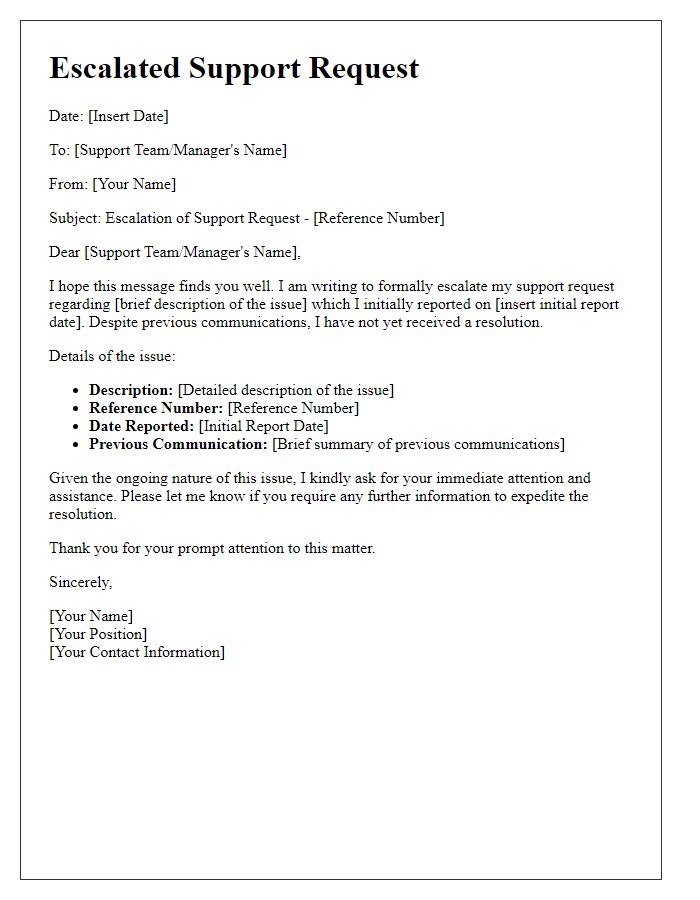
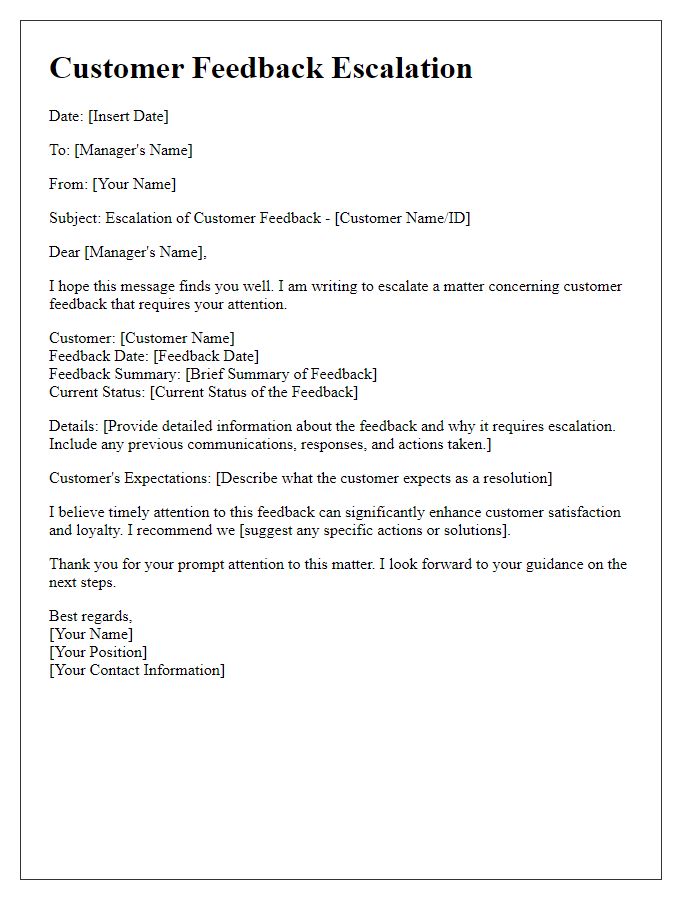
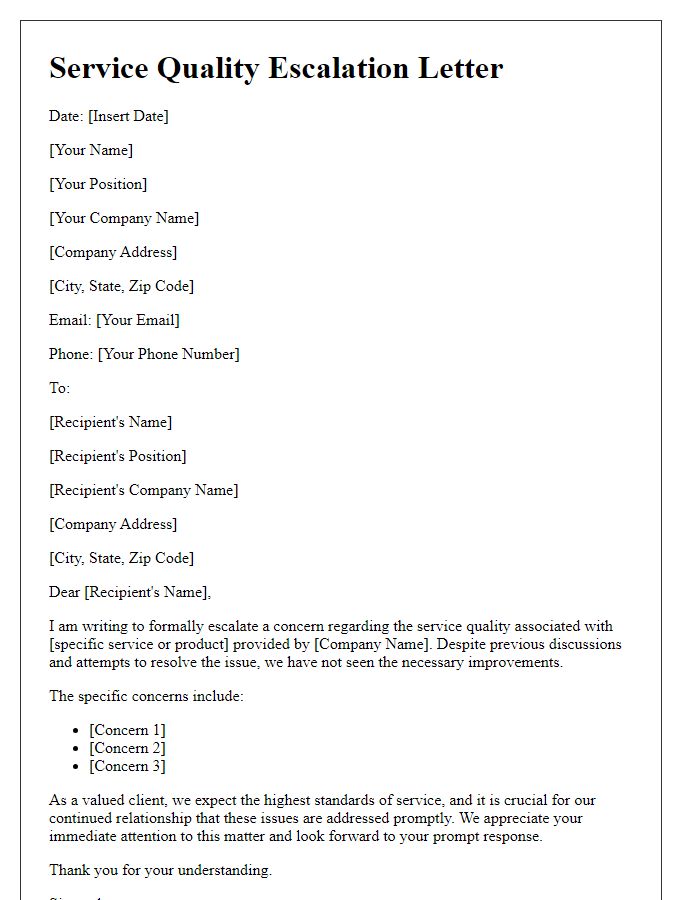
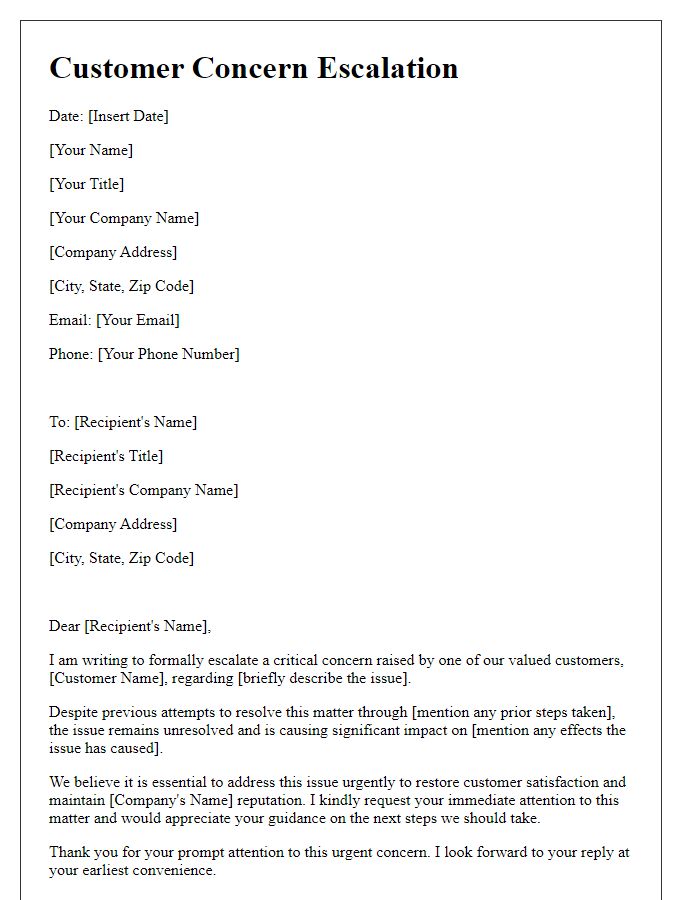


Comments